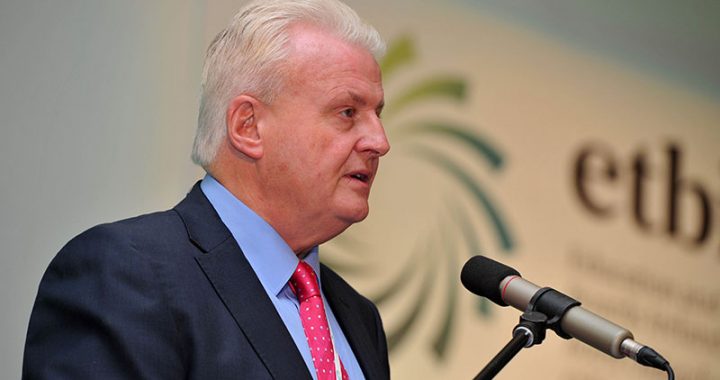
All human relations are built on trust. We know from our own life experiences that trust has to be earned. Solid partnerships are built on mutual trust -it is a two way process. There is a wise old proverb which encapsulates the fragility of trust in any meaningful relationship : Trusting you is my decision. Proving me right is your choice.
In recent times there appears to be a growing lack of trust in government and institutions. This lack of trust can lead to polarisation in society and this has certainly been a trend in recent years in many countries across the world.
In my book , Every Leader’s Reality Guide, I talk about the importance of respect and trust in the workplace. Where these exist there will be good morale, cooperative spirit and increased productivity. Where trust is damaged relationships are equally damaged and there can be an atmosphere of suspicion, hostility or apathy and good people will leave the organisation.

Trust and leadership go hand in hand. The first job of any leader is to earn trust and then ensure that trust permeates the organisation. Trust does not come with a job title . Having earned trust it is vital for any leader to maintain that trust if he or she is to have real followers. Absence of trust generates fragmentation and conflict.
Building trust is a measured process which requires consistency in behaviour and actions. Certainly showing respect to others, being transparent in word and action, engaging stakeholders and sharing information are crucially important elements in building a trusting and cooperative culture.
Trust is built on consistency and cannot be faked. He who does not trust enough will not be trusted – Lao Tzu, Chinese philosopher.
Having knowledge, skills and competencies will matter little if your team or followers do not trust you. Your vision for the future of your organisation will be damaged if trust is damaged. Your teams’ effectiveness will be damaged if trust is damaged. Your reputation is damaged if trust in you is damaged.
So it is important to mean what you say and to say what you mean. Be a person of honour and honour your word. if you sometimes fall short it is important to show you have both the courage and humility to apologise. People admire those who admit to mistakes and so it is important to seek to repair any possible damage to a trusting relationship as soon as possible.
A real apology involves admitting your mistake and accepting responsibility for your actions . Take heart from what Bruce Lee once said: Mistakes are always forgivable, if one has the courage to admit them. Learn from mistakes and move on but be sure that you have regained the trust of your colleagues and followers.
Trust is often fragile so it needs to be protected. It can be easy to lose but hard to regain. For all types of relationships to prosper we need trust at the core. Take heed of an old proverb: Trust, once you get it. It’s priceless. But once you lose it, you are useless. A stark warning indeed.

